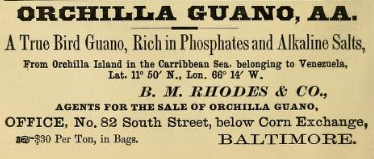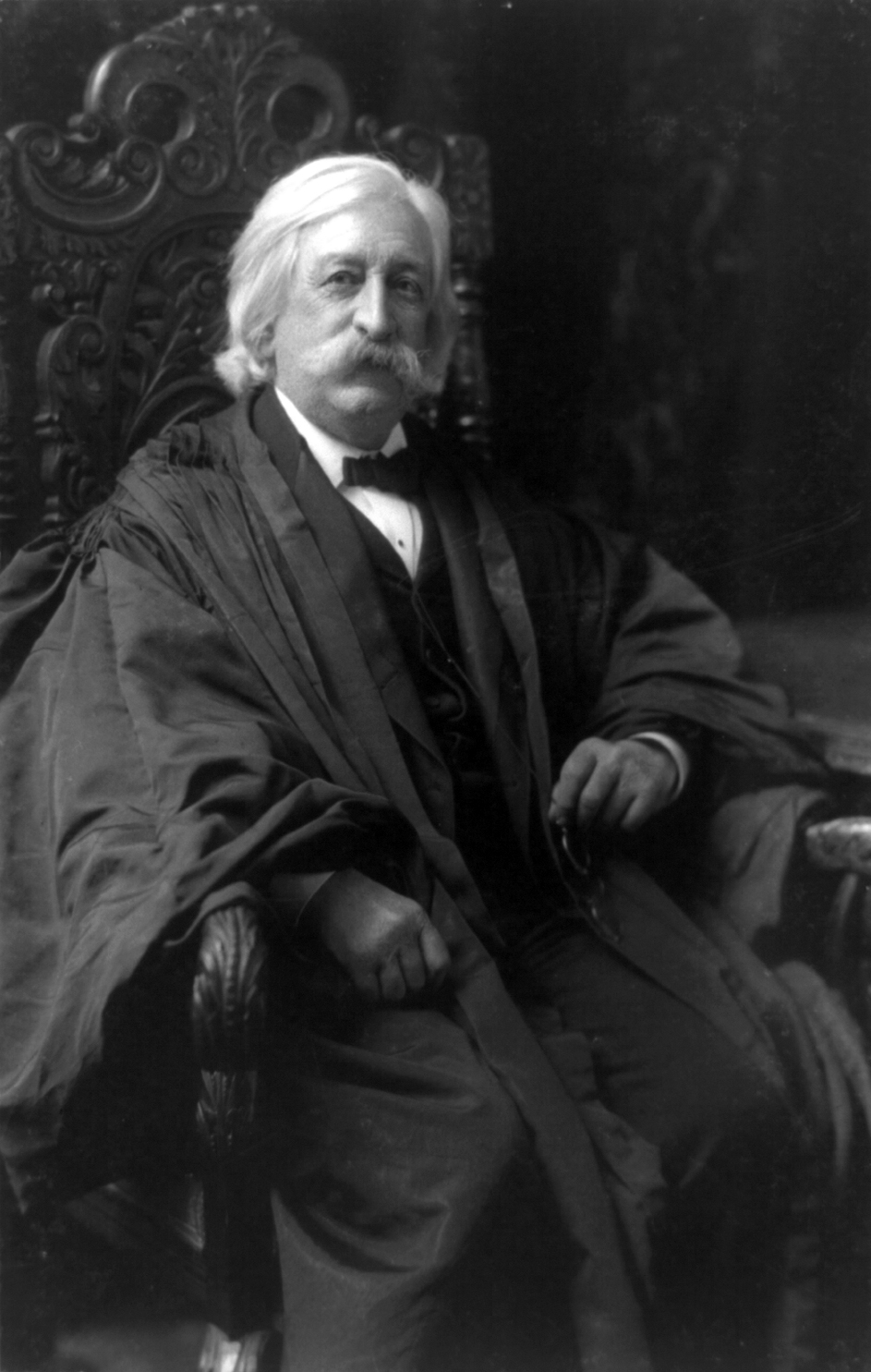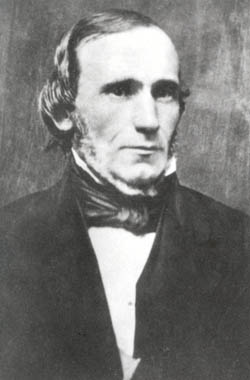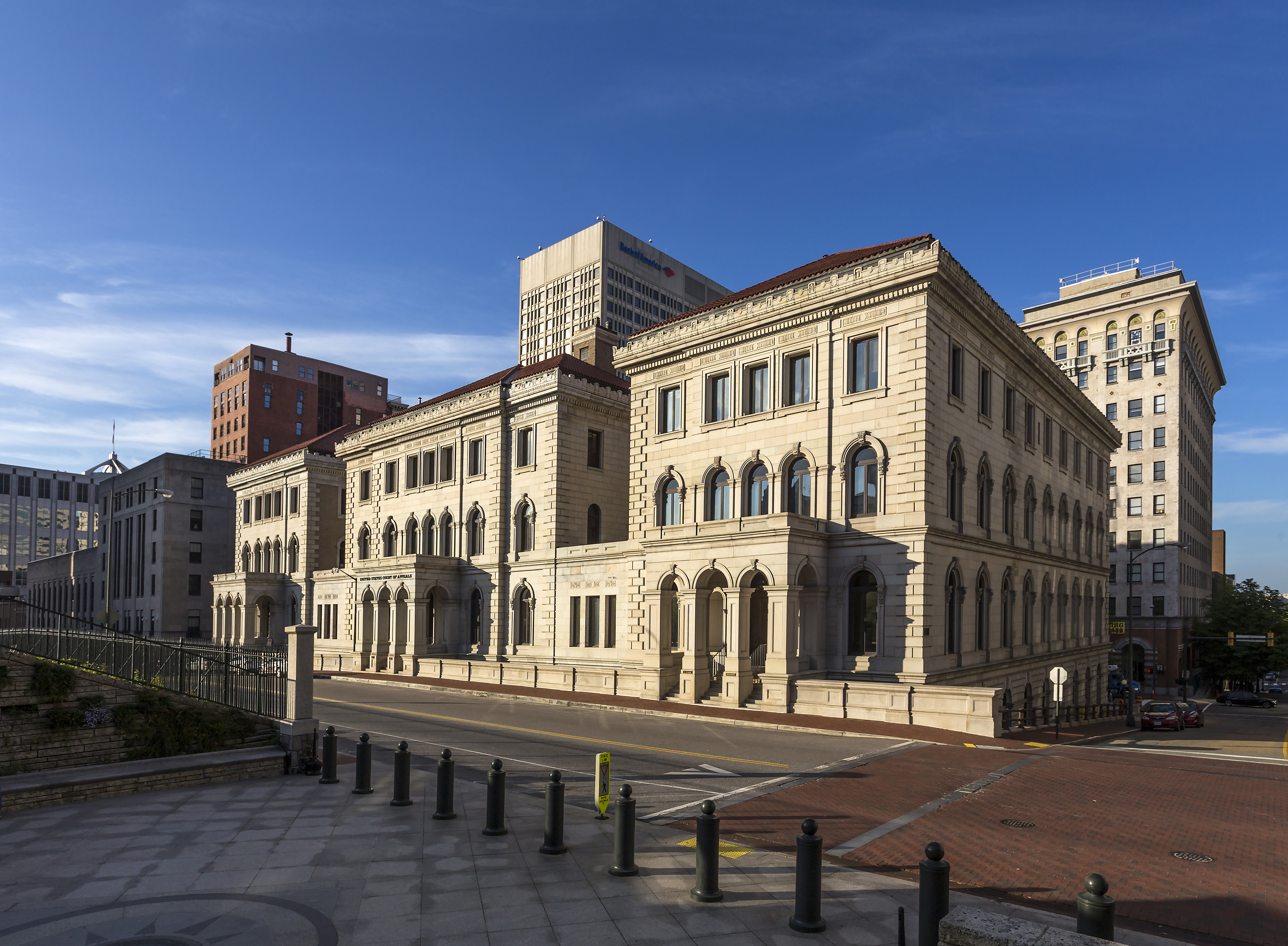|
Jones V. United States (1890)
''Jones v. United States'' 137 U.S. 202 (1890) is a United States Supreme Court case in which the court held that the Guano Islands Act, which states that any island that fell under the act was under the jurisdiction of any existing statues or laws pertaining to high seas, was constitutional. The case originated from claims the United States government could not prosecute Henry Jones for a murder committed on Navassa Island during a worker riot.''Jones v. United States'', . Background The Guano Islands Act, passed in 1856, allowed any American to claim as property of the United States any unclaimed island that contained deposits of guano. These lands would be proclaimed territory of the United States and, according to Section 6 of the act, any crimes or offenses committed on or adjacent to these islands "shall be deemed committed on the high seas, on board a merchant ship or vessel belonging to the United States; and shall be punished according to the laws of the United States re ... [...More Info...] [...Related Items...] OR: [Wikipedia] [Google] [Baidu] |
Guano Islands Act
The Guano Islands Act (, enacted August 18, 1856, codified at §§ 1411-1419) is a United States federal law passed by the U.S. Congress that enables citizens of the United States to take possession, in the name of the United States, of unclaimed islands containing guano deposits. The islands can be located anywhere, so long as they are not occupied and not within the jurisdiction of another government. It also empowers the president of the United States to use the military to protect such interests and establishes the criminal jurisdiction of the United States in these territories. Background In the 1840s, guano came to be prized as a source of saltpeter for gunpowder as well as an agricultural fertilizer. The United States began importing it in 1843 through New York. By the early 1850s, the U.K. imported over 200,000 tons a year, and U.S. imports totaled about 760,000 tons. The "guano mania" of the 1850s led to high prices in an oligopolistic market, attempts of price cont ... [...More Info...] [...Related Items...] OR: [Wikipedia] [Google] [Baidu] |
Death Penalty
Capital punishment, also known as the death penalty, is the state-sanctioned practice of deliberately killing a person as a punishment for an actual or supposed crime, usually following an authorized, rule-governed process to conclude that the person is responsible for violating norms that warrant said punishment. The sentence ordering that an offender is to be punished in such a manner is known as a death sentence, and the act of carrying out the sentence is known as an execution. A prisoner who has been sentenced to death and awaits execution is ''condemned'' and is commonly referred to as being "on death row". Crimes that are punishable by death are known as ''capital crimes'', ''capital offences'', or ''capital felonies'', and vary depending on the jurisdiction, but commonly include serious crimes against the person, such as murder, mass murder, aggravated cases of rape (often including child sexual abuse), terrorism, aircraft hijacking, war crimes, crimes against hum ... [...More Info...] [...Related Items...] OR: [Wikipedia] [Google] [Baidu] |
List Of United States Supreme Court Cases, Volume 137
This is a list of cases reported in volume 137 of ''United States Reports'', decided by the Supreme Court of the United States in 1890 and 1891. Justices of the Supreme Court at the time of volume 137 U.S. The Supreme Court is established by Article III, Section 1 of the Constitution of the United States, which says: "The judicial Power of the United States, shall be vested in one supreme Court . . .". The size of the Court is not specified; the Constitution leaves it to Congress to set the number of justices. Under the Judiciary Act of 1789 Congress originally fixed the number of justices at six (one chief justice and five associate justices). Since 1789 Congress has varied the size of the Court from six to seven, nine, ten, and back to nine justices (always including one chief justice). When the cases in volume 137 U.S. were decided the Court comprised the following nine members: Citation style Under the Judiciary Act of 1789 the federal court structure at ... [...More Info...] [...Related Items...] OR: [Wikipedia] [Google] [Baidu] |
State Of The Union Address
The State of the Union Address (sometimes abbreviated to SOTU) is an annual message delivered by the president of the United States to a joint session of the United States Congress near the beginning of each calendar year on the current condition of the nation. The State of the Union Address generally includes reports on the nation's budget, economy, news, agenda, achievements and the president's priorities and legislative proposals. The address fulfills the requirement in Article II, Section 3, Clause 1 of the U.S. Constitution for the president to periodically "give to the Congress Information of the State of the Union, and recommend to their Consideration such measures as he shall judge necessary and expedient." During most of the country's first century, the president primarily submitted only a written report to Congress. After 1913, Woodrow Wilson, the 28th U.S. president, began the regular practice of delivering the address to Congress in person as a way to rally support ... [...More Info...] [...Related Items...] OR: [Wikipedia] [Google] [Baidu] |
Benjamin Harrison
Benjamin Harrison (August 20, 1833March 13, 1901) was an American lawyer and politician who served as the 23rd president of the United States from 1889 to 1893. He was a member of the Harrison family of Virginia–a grandson of the ninth president, William Henry Harrison, and a great-grandson of Benjamin Harrison V, a founding father. Harrison was born on a farm by the Ohio River and graduated from Miami University in Oxford, Ohio. After moving to Indianapolis, he established himself as a prominent local attorney, Presbyterian church leader, and politician in Indiana. During the American Civil War, he served in the Union Army as a colonel, and was confirmed by the U.S. Senate as a brevet brigadier general of volunteers in 1865. Harrison unsuccessfully ran for governor of Indiana in 1876. The Indiana General Assembly elected Harrison to a six-year term in the Senate, where he served from 1881 to 1887. A Republican, Harrison was elected to the presidency in 1888, def ... [...More Info...] [...Related Items...] OR: [Wikipedia] [Google] [Baidu] |
Territorial Waters
The term territorial waters is sometimes used informally to refer to any area of water over which a sovereign state has jurisdiction, including internal waters, the territorial sea, the contiguous zone, the exclusive economic zone, and potentially the extended continental shelf. In a narrower sense, the term is used as a synonym for the territorial sea. Baseline Normally, the baseline from which the territorial sea is measured is the low-water line along the coast as marked on large-scale charts officially recognized by the coastal state. This is either the low-water mark closest to the shore, or alternatively it may be an unlimited distance from permanently exposed land, provided that some portion of elevations exposed at low tide but covered at high tide (like mud flats) is within of permanently exposed land. Straight baselines can alternatively be defined connecting fringing islands along a coast, across the mouths of rivers, or with certain restrictions across the mou ... [...More Info...] [...Related Items...] OR: [Wikipedia] [Google] [Baidu] |
Horace Gray
Horace Gray (March 24, 1828 – September 15, 1902) was an American jurist who served on the Massachusetts Supreme Judicial Court, and then on the United States Supreme Court, where he frequently interpreted the Constitution in ways that increased the powers of Congress. Noted for possessing a sharp mind and an enthusiasm for legal research, he was also a staunch supporter of the authority of precedent throughout his career. Early life Gray was born in Boston, Massachusetts, the son of Horace and Harriet Upham Gray, and grandson of merchant and politician William Gray. He enrolled at Harvard College at the age of 13, and graduated four years later. After traveling in Europe for a time, Gray entered Harvard Law School, from which he graduated with an LL.B. in 1849. Gray was admitted to the bar in 1851, and practiced law in Boston for 13 years. Judicial career Massachusetts state courts In 1854, he was named Reporter of Decisions for the Massachusetts Supreme Judicial Court. Wh ... [...More Info...] [...Related Items...] OR: [Wikipedia] [Google] [Baidu] |
US Law
The law of the United States comprises many levels of codified and uncodified forms of law, of which the most important is the nation's Constitution, which prescribes the foundation of the federal government of the United States, as well as various civil liberties. The Constitution sets out the boundaries of federal law, which consists of Acts of Congress, treaties ratified by the Senate, regulations promulgated by the executive branch, and case law originating from the federal judiciary. The United States Code is the official compilation and codification of general and permanent federal statutory law. Federal law and treaties, so long as they are in accordance with the Constitution, preempt conflicting state and territorial laws in the 50 U.S. states and in the territories. However, the scope of federal preemption is limited because the scope of federal power is not universal. In the dual sovereign system of American federalism (actually tripartite because of the presence of ... [...More Info...] [...Related Items...] OR: [Wikipedia] [Google] [Baidu] |
United States Court Of Appeals For The Fourth Circuit
The United States Court of Appeals for the Fourth Circuit (in case citations, 4th Cir.) is a federal court located in Richmond, Virginia, with appellate jurisdiction over the district courts in the following districts: * District of Maryland *Eastern District of North Carolina * Middle District of North Carolina *Western District of North Carolina * District of South Carolina * Eastern District of Virginia * Western District of Virginia * Northern District of West Virginia *Southern District of West Virginia The court is based at the Lewis F. Powell Jr. United States Courthouse in Richmond, Virginia. With 15 authorized judgeships, it is mid-sized among the 13 United States Courts of Appeals. __TOC__ Current composition of the court : Vacancies and pending nominations List of former judges Chief judges Succession of seats ... [...More Info...] [...Related Items...] OR: [Wikipedia] [Google] [Baidu] |
Maryland District Court
The District Court of Maryland is a state lower trial court (court of original jurisdiction) in the state of Maryland.Gibbs Smith, Maryland Government (2010), pp. 125, 128, 129, 166/ref> It enjoys limited jurisdiction over "minor issues," including over all landlord-tenant law cases, replevin actions (the recovery or return of wrongfully taken goods), motor vehicle violations, misdemeanors such as disturbing the peace, and certain felonies. The District Court does not conduct jury trials. It is a single state court with multiple locations, even though it is typically referred to by the county in which it sits, such as the "Allegany County District Court." The court sits in at least one location in each county, with multiple places of sitting in Baltimore City and some large suburban counties. While counties must typically pay many of the expenses for the local Maryland Circuit Court, the state always pays for the operations of the District Court. There is at least one distric ... [...More Info...] [...Related Items...] OR: [Wikipedia] [Google] [Baidu] |
Self Defense
Self-defense (self-defence primarily in Commonwealth English) is a countermeasure that involves defending the health and well-being of oneself from harm. The use of the right of self-defense as a legal justification for the use of force in times of danger is available in many jurisdictions. Physical Physical self-defense is the use of physical force to counter an immediate threat of violence. Such force can be either armed or unarmed. In either case, the chances of success depend on various parameters, related to the severity of the threat on one hand, but also on the mental and physical preparedness of the defender. Unarmed Many styles of martial arts are practiced for self-defense or include self-defense techniques. Some styles train primarily for self-defense, while other combat sports can be effectively applied for self-defense. Some martial arts train how to escape from a knife or gun situation or how to break away from a punch, while others train how to attack. To ... [...More Info...] [...Related Items...] OR: [Wikipedia] [Google] [Baidu] |
United States Supreme Court
The Supreme Court of the United States (SCOTUS) is the highest court in the federal judiciary of the United States. It has ultimate appellate jurisdiction over all U.S. federal court cases, and over state court cases that involve a point of federal law. It also has original jurisdiction over a narrow range of cases, specifically "all Cases affecting Ambassadors, other public Ministers and Consuls, and those in which a State shall be Party." The court holds the power of judicial review, the ability to invalidate a statute for violating a provision of the Constitution. It is also able to strike down presidential directives for violating either the Constitution or statutory law. However, it may act only within the context of a case in an area of law over which it has jurisdiction. The court may decide cases having political overtones, but has ruled that it does not have power to decide non-justiciable political questions. Established by Article Three of the United States C ... [...More Info...] [...Related Items...] OR: [Wikipedia] [Google] [Baidu] |








